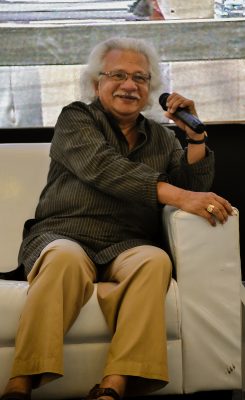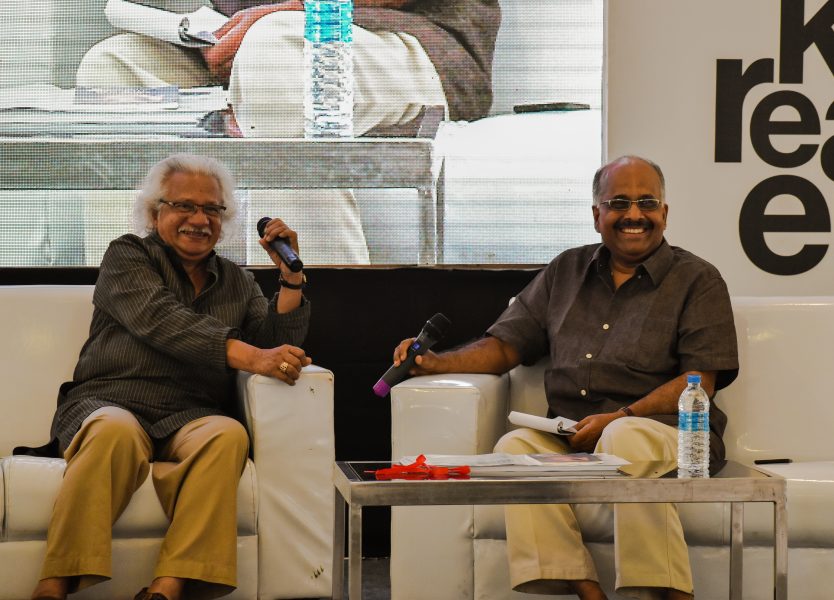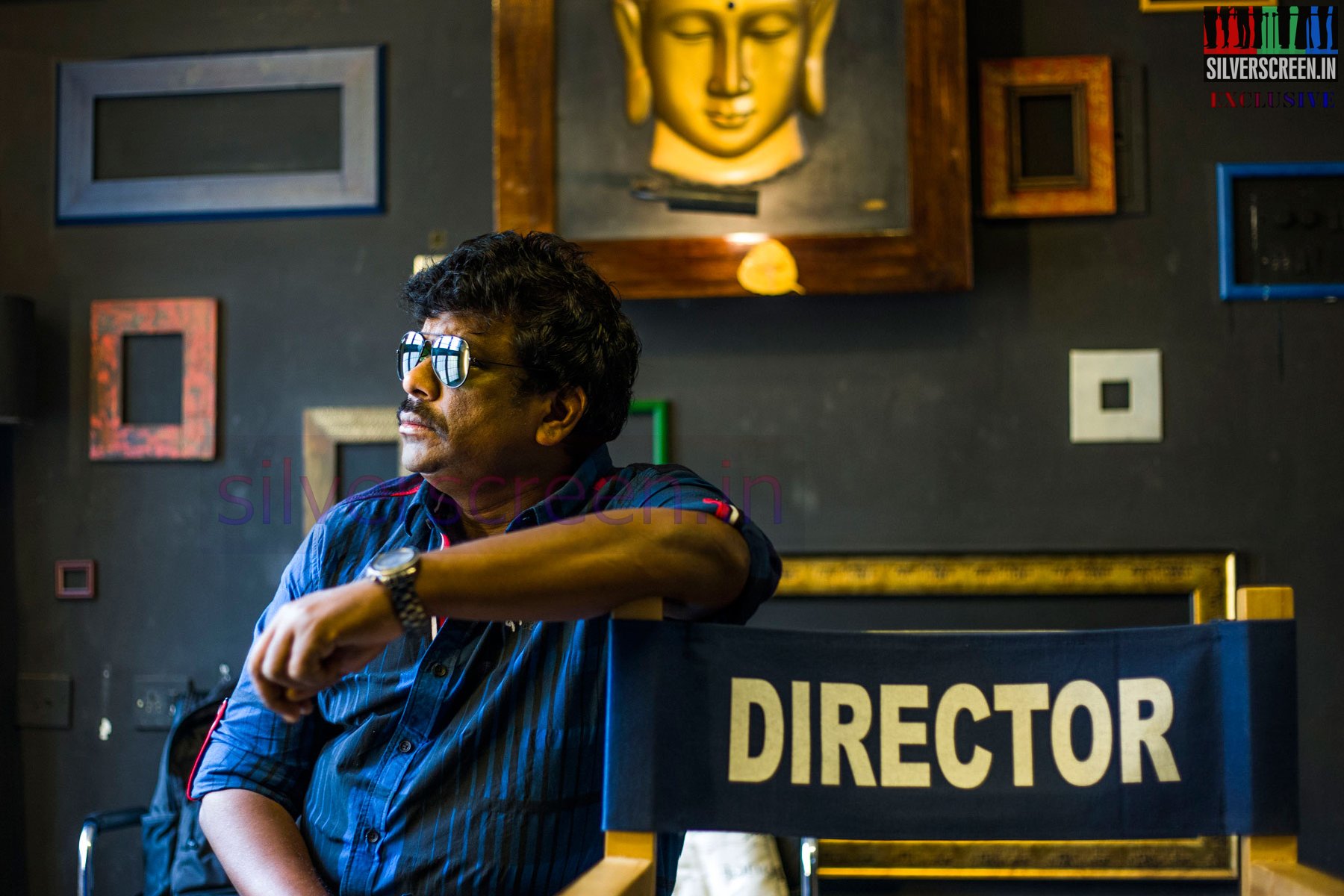“Cinema not just connects with the audience at the artistic level but also in a psychological or spiritual sense,” said veteran filmmaker Adoor Gopalakrishnan during a session at the Krithi International Literary Festival in Kochi.
In the hour-long discussion with Malayalam film critic John Samuel, Adoor discussed and shared his thoughts on films and the art of filmmaking. Expressing his concerns over the assignments given to film students, he said, “The screenplay writing process is important only to a filmmaker while doing his job, there’s no need to assign screenplay writing to students of Classes 8, 9 or 10. Instead schools should mould students to help them appreciate art and make them insatiable readers.”
Adoor, who has been working in the field of cinema for the last 60 years, recalled his time at the Film and Television Institute of India in Pune. “A group of us formed the Chitralekha Film Society and we made the movie Swayamvaram and it went through hell to reach the current glory it receives now. Initially, our film was not selected for the National Awards, later we heard it on radio that it won the National Award for Best Film.”

krithi 121-2
“Elipathayam and Unni’s character resonated with many. At film festivals abroad, audience from foreign countries and culture would tell me how similar their life is to the character of Unni,” he said.
Talking about his influences and the characters he has etched out, he said, “My characters are nothing but a product of myself.” When John Samuel said whether it’s Unni in Elippathayam or Shankarankutty in Kodiyettam or even Kunjunni of Kathapurashan, each character has a life of their own, the auteur replied, “It’s true as they are an extension of myself and they still live inside me.”
Apart from writing his own stories, Adoor has adapted storylines from two of Thakazhi Sivasankaran Pillai’s short stories, Vidheyan is from Zacharia’s novella Bhaskara Patellar and Mathilukal from Vaikom Muhammad Bashir’s novel of the same name.
“All these characters in the films which I’ve directed still explore the questions I’ve been asking myself. But these phenomenal writers have also given a certain existence of their own. That’s why I think I was impressed and inspired to give them a cinematic form,” he said.
Recommended
On the label of being a Communist filmmaker, he said, “I experienced a funny yet thoughtful situation during the release of Mukhamukham. In Kerala, I was criticised to be an anti-communist but when the film was screened in the US, I was projected as a good Communist filmmaker from India. This left me pretty confused.” He added that this taught him that people’s perspective change all the time.
On the criticism that his last film Pinneyum faced, he said people who criticised the film don’t understand cinema. “My films are by-products of what’s in my mind and it’s a projection of it, due to which Pinneyum will always be close to my heart.”
Image Courtesy: Varun Gopalakrishnan



